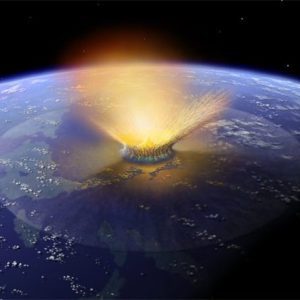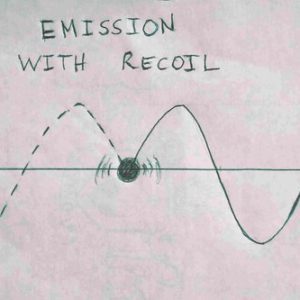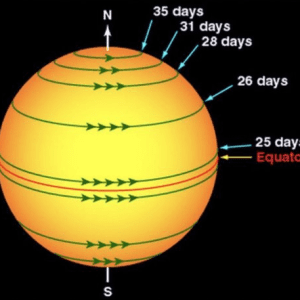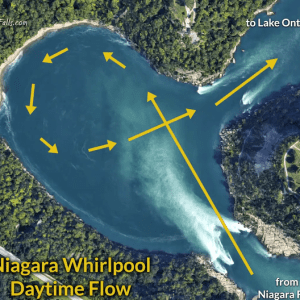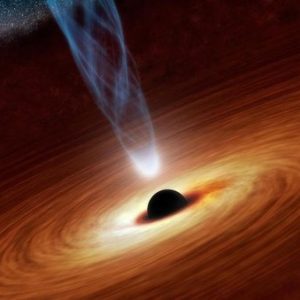
That’s a good question since so many people imagine that the speed of light is very fast, when it is extremely, extremely slow in an astronomical context. And the only answer is, because the (observable) universe is already quite old and has grown to an incomprehensible size.
It is generally believed that the speed of light must have remained constant through the universe’s history (although some non-mainstream theorists challenge that view) so when the universe was very young, say around 1 billion years old when proto-galaxies were just forming, it would not take too much time for light from one proto-galaxy to reach a neighbor one. Astronomical structures were much closer to each other, much more densely packed.
But by now space has stretched a lot and it takes light a lot of time to reach anywhere but the closest galaxies.
The surface of last scattering (the CMB radiation source) was only around (edit) 40 million light years away from “the location where the Earth sits now” when that light was emitted (if we can use that expression, the Earth did not exist yet, neither any star nor galaxy, it’s only for representing the rate of the space expansion since then), and yet is has taken 13 billion years to reach us, because as the light was trying to come to here, our space location was receding from that source surface at an enormous rate, and only now after 13 billion years has that light been able to catch up with that space expansion and finally reach us.
Perhaps it’s worth clarifying that the CMB has always been bathing “our current location in space”, but with a different frequency and slightly different emission times. The earlier the epoch, the higher the frequency of the CMB which was reaching “our space location”.
Another factor is that our human size and time scales are so short. Things happen very fast at our tiny scale, in a human lifetime we perceive a lot of events, change is very fast. For much bigger structures change happens much more slowly.
Perhaps if there could be a sentient system the size of a galaxy, his perception of the rate of change would be much slower, perhaps it could live for billions of years and light would proportionally seem to travel much faster. Obviously this is just wild sci-fi speculation!
Great question though it’s funny you should ask it in the particular manner that you did. By that I mean ironic funny not lol funny.
But I get what you mean. The closest star system is over 4 light years away. The Milky Way is 100,000 light years across. The distance to the closest galaxy is 2.54 million light years away and the most distant observable galaxies are billions of light years away.
Yet we are theoretically limited to only traveling at speeds slower than the speed of light and we haven’t even come anywhere close to that limit yet. So what’s the point if it’s theoretically impossible to get anywhere?
The irony is that if you could actually travel at the speed of light, which as far as we know you can’t, but if you could, then the universe wouldn’t be large at all. In fact, it would actually be infinitessimally small and it would only take an instant in time to traverse the entire span of the universe at the speed of light.
It’s absolutely true! (in a hypothetical manner of speaking). In fact, it’s the very same math that prevents us from ever traveling at the speed of light that actually removes all theoretical boundaries for reaching anywhere within the known Universe at the very same time! That was the profound beauty of Einstein’s Theory of Special Relativity.
This is due to the fact that spacetime in front of a moving ship actually contracts and the amount it contracts increases exponentially as its speed increases until the amount of contraction becomes infinite at the speed of light!
However, this contraction of space does not come without a cost because the energy required to accelerate up to the speed of light also increases at the same exponential rate until the energy required to reach the speed of light becomes infinite which is why you can never accelerate up to the speed of light. Well… outside of falling into a black hole that is, because there are no energy costs in that case, but that’s another discussion.
Don’t get me wrong. Space travel is not a trivial task and it will not be an easy achievement for humanity to reach even the nearest star system but the point is that nothing is theoretically impossible to reach.
Only one thing is a logical certainty. If no one cares about anything beyond their own self interests, then it’s a logical certainty that Humanity will become extinct before we can ever reach the stars.
What clearer message do we need? The future of humanity is entirely up to us with no theoretical limits or excuses, and the only boundaries as to what we can achieve will be our own extinction due to our corruption, stupidity or weakness of character but then again, nobody ever said anything about our future being easy.

